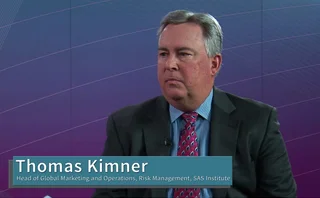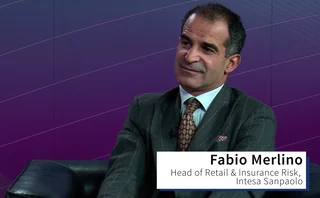
Of MiFID and Market Data
The EU's Markets in Financial Instruments Directive will dramatically transform the structure of the market data industry, according to market participants.
Industry players agree that one of the most significant drivers for reform under MiFID is the fragmentation of data sources. After MiFID and the end of concentration rules, firms will be able to choose where to report trades and how to publish post-trade data. "There will be competition among exchanges for publishing post-trade data," says Andrew Allwright, manager of regulatory commercial strategy at Reuters.
Moreover, data vendors will need to aggregate data from multiple sources, even for single stocks. "As a vendor of data, we will have to source data from all potential aggregators of data," says Allwright. "The role of the data vendor will become more complicated as sources of data multiply."
However, Glenn Bedwin, director of institutional research at Thomson Financial, says it won't be that different from what data aggregators already do. "MiFID will bring extra challenges, but from an aggregation perspective, they are manageable and present opportunities for vendors," he says.
Market data traffic will also be affected. "Market data tick volumes will rise as all European markets potentially admit all European securities for trading on a pan-European basis," says Kevin Bourne, global head of execution trading at HSBC. He says that the post-trade intra-market reporting requirements will also have a significant impact on data traffic.
Allwright suggests that there will also be a proliferation of low-quality pre-trade quote data due to the requirement that systematic internalizers publish such information.
But Roberto Rivero, co-founder of UK consultancy Intelligent Growth, says the biggest impact will be the fragmentation of data sources, and the biggest losers under MiFID will be the established exchanges. Many exchanges charge firms for fulfilling their regulatory requirements of reporting trades via exchanges. Under MiFID, firms will have the option to report trades by a variety of means. As a result, Rivero says exchanges will no longer charge for firms to report trades via their infrastructure. "People at the exchanges are writing off their reporting fees," he says.
Nick Dutton, manager of regulatory strategy for the London Stock Exchange, says he doesn't believe London will be significantly affected, because while there will be competitive pressures regarding fees, extensive fragmentation of liquidity is unlikely. "The LSE's order book allows interplay between the other pools of liquidity—and MiFID is trying to encourage this model in other jurisdictions. We're pretty much there already," he says.
Inside Market DataOnly users who have a paid subscription or are part of a corporate subscription are able to print or copy content.
To access these options, along with all other subscription benefits, please contact info@risk.net or view our subscription options here: http://subscriptions.risk.net/subscribe
You are currently unable to print this content. Please contact info@risk.net to find out more.
You are currently unable to copy this content. Please contact info@risk.net to find out more.
Copyright Infopro Digital Limited. All rights reserved.
As outlined in our terms and conditions, https://www.infopro-digital.com/terms-and-conditions/subscriptions/ (point 2.4), printing is limited to a single copy.
If you would like to purchase additional rights please email info@risk.net
Copyright Infopro Digital Limited. All rights reserved.
You may share this content using our article tools. As outlined in our terms and conditions, https://www.infopro-digital.com/terms-and-conditions/subscriptions/ (clause 2.4), an Authorised User may only make one copy of the materials for their own personal use. You must also comply with the restrictions in clause 2.5.
If you would like to purchase additional rights please email info@risk.net
More on Infrastructure
Communications surveillance solutions 2024: market update
A report offering Chartis’ latest view of the vendor landscape for communications surveillance solutions
SIMONE, the AI that nearly took down a bank
An algorithm designed to create new structured products ran out of control last year with almost catastrophic consequences for a major bank, as our exclusive whistleblower account reveals
Revealed: where banks are (literally) warehousing their swaps
As derivatives notional grows, dealers experiment with novel storage solutions
E-trading takes hold for FX swaps – sort of
Bulk of trades are being executed over screen, but bolder changes have stalled
From DNA to DHA – Preparing for a new era of digital human augmentation
As technology increasingly permeates societies, cultures and everyday activities, its integration into people’s lives is having a profound impact on what is expected of people in the workplace. Deloitte examines this evolution of today’s workforce, the…
Risk and finance: Working more closely together
Video interview: Thomas Kimner, SAS
Video interview: Fabio Merlino, Intesa Sanpaolo
Fabio Merlino, head of retail and insurance risk discusses how the wealth management division of Intesa Sanpaolo upgraded its risk analytics capabilities with the algo system used by its proprietary traders
The changing face of Risk.net and our magazines
Extensive reader consultation has helped us reshape editorial teams and our site







